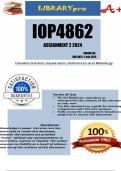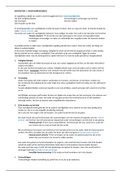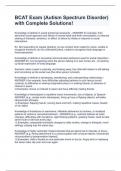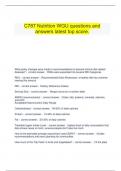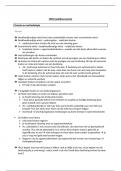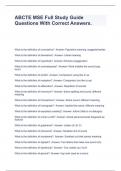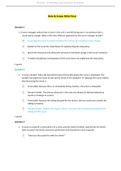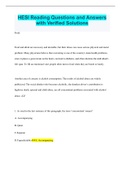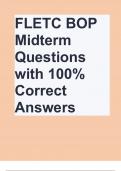Tentamen (uitwerkingen)
Basic Pharmacology For Nurses 17Th Ed By Clayton -Test Bank
- Vak
- Instelling
Chapter 03: Drug Action Across the Life Span Clayton/Willihnganz: Basic Pharmacology for Nurses, 17th Edition MULTIPLE CHOICE 1. What time will the trough blood level need to be drawn if the nurse administers the intravenous medication dose at 9:00 AM? a. 6:30 AM b. 8:30 AM c. 9:30 AM...
[Meer zien]




